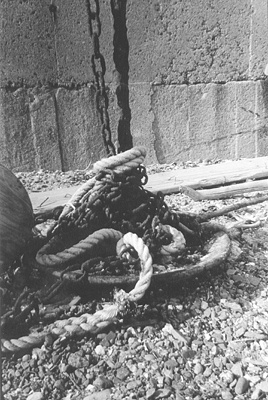All Nonfiction
- Bullying
- Books
- Academic
- Author Interviews
- Celebrity interviews
- College Articles
- College Essays
- Educator of the Year
- Heroes
- Interviews
- Memoir
- Personal Experience
- Sports
- Travel & Culture
All Opinions
- Bullying
- Current Events / Politics
- Discrimination
- Drugs / Alcohol / Smoking
- Entertainment / Celebrities
- Environment
- Love / Relationships
- Movies / Music / TV
- Pop Culture / Trends
- School / College
- Social Issues / Civics
- Spirituality / Religion
- Sports / Hobbies
All Hot Topics
- Bullying
- Community Service
- Environment
- Health
- Letters to the Editor
- Pride & Prejudice
- What Matters
- Back
Summer Guide
- Program Links
- Program Reviews
- Back
College Guide
- College Links
- College Reviews
- College Essays
- College Articles
- Back
Penance
Inquisitor Benedictus was as meticulous as he was austere. His office was a stark, windowless, rectangular chamber with walls the color of eggshells, lacking in pretentions. The only furnishings were the traditional instruments of an Inquisitor: a bed, a toolbox, a spool of simple hempen rope, a basin of water, a humble hearth.
Benedictus had received his training at the Maesters’ Priory, where he had learned how to scry truths out of the foggy looking glass of ignominy that is the soul of a sinner, how to lead the great prayers and hymns in dozens of languages, and how to heal the ill; nothing he had learned at the Priory had prepared him for this, though.
The man firmly strapped to the rack was clad in coarse linen, with the faded insignia of his former order still visible on his breast, over his heart. His cheeks were sunken, his hair matted; a knotted scraggle of greyish beard had formed on his defiant chin.
Benedictus had wrought confessions from peasants, from hardened criminals, from noblemen, from soldiers, from scholars, but never from his own godly Father. As the Inquisitor unlatched his trunk and withdrew a metal device of unstained iron, he noticed that his hands had begun to shake.
All resolve drained from the pallid, hooded Inquisitor when he made the mistake of glancing into the clear blue eyes of the demon before him, the demon he had once loved so dear. Yet as all his will was draining away, Inquisitor Benedictus recalled the vow he had taken, the words, “all who sin art lost:” the demon’s own words, and he steeled himself.
“My Son…” the demon began, but some aspect he saw in Benedictus willed him into a proud, quiet resignation; “let it be done then,” he said instead. By the end, Benedictus’ immaculate vestments were marred, and so he threw them into the fire. Benedictus contemplated his life, but that did not take long. He had given his best years over to the faith. Sighing, he spoke the words, “all who sin art lost,” as he slid his ceremonial saber between his ribs.

Similar Articles
JOIN THE DISCUSSION
This article has 0 comments.
